August 17, 2022
The young Americans imprisoned at Irshad Rehabilitation Centre feared the isolation room the most.
When they violated some rehab-center rule, or no rule at all, they’d be locked in the room, located in a corner of an inner courtyard that was topped by electrified wire and razor coils.
Abdirizak Aden Ahmed, a Somali-American teenager from Mechanicsburg, Pa., says he spent a dozen or so stints in isolation during the eight months he was confined against his will at Irshad, in Nairobi’s heavily Somali Eastleigh neighborhood.
Irshad and similar facilities in Somalia and Kenya market themselves to desperate diaspora Somali parents as professional treatment for young people who are drug users, alcoholics, mentally ill, gay, disobedient, sacrilegious or simply too Westernized.
Mr. Aden’s mother, frantic about his marijuana use in Pennsylvania, says she paid Irshad $600 a month for what the center promised would be effective drug-treatment, room and board.
The reality is much grimmer.
Mr. Aden says inside the darkened chamber a man named Cherad “Abubakar” Okumu, the rehab center’s staff supervisor, punched him until his face bled and doused him in urine and cold water for perceived offenses as minor as failing to memorize verses from the Quran. Mr. Okumu left the 18-year-old laid out on the isolation room’s concrete floor, undressed and shivering in a puddle for days, Mr. Aden says. “They were torturing me,” he says.
In April, Kenyan police raided Irshad and rescued Mr. Aden, five other Somali-Americans and one Somali with U.S. residency, as well as ethnic Somalis from the U.K., Canada and the Netherlands. The U.S. Embassy in Nairobi secured passports and air tickets home for the American citizens.
The group is among several hundred Somali-Americans the embassy has helped escape from for-profit rehab centers in Somalia and Kenya over the past five years.
According to former residents, an ex-Irshad employee, U.S. diplomats, Somali human-rights activists and Kenyan police, Irshad and many other so-called cultural-rehabilitation centers in East Africa are little better than private prisons where hundreds of young people raised in the U.S. and Europe are stripped of their passports and beaten into mending their ways. In some centers, residents spend their days and nights in chains.
“These cultural-rehabilitation centers are moneymakers and pop up everywhere,” says Robyn Luffman, a consular officer at the U.S. Embassy in Nairobi.
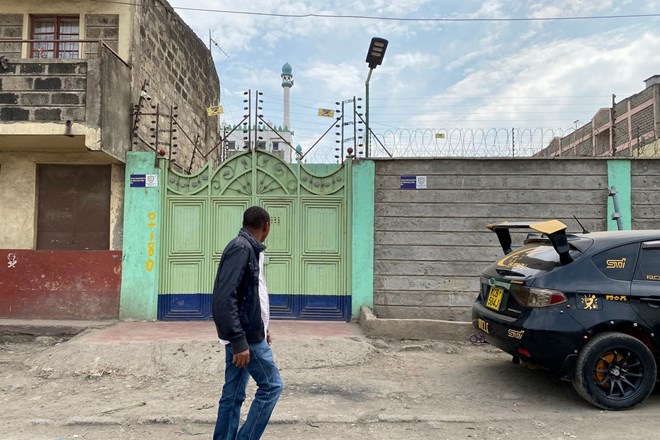
A man walks by the Irshad Rehabilitation Centre in Nairobi’s Eastleigh neighborhood. PHOTO: MICHAEL M. PHILLIPS/THE WALL STREET JOURNAL
Embassy officials say there are four licensed rehab centers in Kenya; police raided two others in 2017.
A spokesman for the Kenyan National Authority for the Campaign Against Alcohol and Drug Abuse, which supervises anti-addiction programs such as the one at Irshad, declined to comment on the treatment of residents at Irshad.
The vast majority of cultural-rehab centers are next door, in Somalia, operating with little or no government oversight, according to diplomats and human-rights advocates.
“Hundreds of people are in there—we don’t know the exact number,” says Guleid Ahmed Jama,a prominent Somali human-rights lawyer.
Since the 1980s, Somalia has slogged through phases of civil war, inter-clan violence, Islamist terror, famine and political strife. Many Somalis escaped to America or Europe, only to watch their Westernized offspring stray from their religion and a culture in which parents traditionally have the last word until their children marry. They sometimes find themselves unable to steer their children clear of drugs, gangs and an unfamiliar legal system, or to help them cope with mental illness.
Large numbers of diaspora Somali parents from the U.S., the U.K., Denmark, Canada and elsewhere have decided their best hope is to take their children—most in their late teens or early 20s—back to Somalia to relearn traditional ways.
Some parents deposit their children with family in the hope that Somali behavioral standards will rub off on them.
Others commit their children to private centers in Somalia and Kenya that promise to turn young people ruined by the West into respectful, drug-free Somalis.
In Minnesota, home to 79,000 Somali immigrants, the threat is so pervasive that young Somalis warn each other darkly to run for it if their parents announce a family vacation to Dubai or a visit to a dying grandmother in the old country.
“We have found in many cases the victim’s parents had no idea of the conditions and were shocked to hear of the physical, mental, and sexual abuse their children suffered,” says Larry André, the U.S. ambassador in Mogadishu, Somalia’s capital. The State Department has issued a travel advisory warning that such centers operate with “inadequate or nonexistent licensing and oversight.”
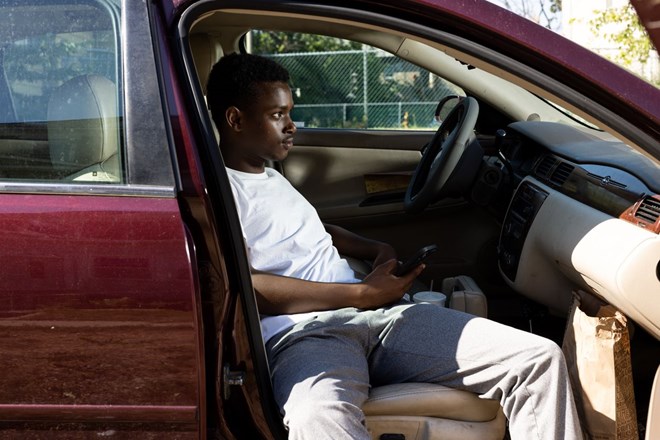
Mr. Aden says he spent 10 or 15 stints in isolation during the eight months he was confined at Irshad. PHOTO: TIM GRUBER FOR THE WALL STREET JOURNAL
Mr. Aden, who split his childhood between Mechanicsburg and St. Cloud, Minn., admits he smoked marijuana in the U.S., and he spent two years in and out of juvenile detention. “My son made some mistakes when he was young,” says his mother.
She says she worried if he didn’t straighten up before he turned 18, he’d end up with an indelible criminal record that would ruin his chances of getting a good job in the U.S.
A cousin suggested a rehab center in Mogadishu.
Early last year, she told Mr. Aden they were going to Africa to see family. They paid a visit to relatives in Kismayo, on the Indian Ocean coast of Somalia, then traveled to Mogadishu.
Mr. Aden smoked marijuana on the morning of his 17th birthday that February in Mogadishu. An older cousin picked him up, and Mr. Aden, very high and barely familiar with Somalia, let himself believe they were going to McDonald’s as a birthday treat.
Instead, the car pulled into a walled compound. Mr. Aden was taken aback when a group of men grabbed him and seized everything he had—his Crocs shoes, his lighter, his money, even the rubber band that kept his ponytail secure. Within minutes, guards locked chains around his ankles and wrists and threw him in a cell. He realized too late that he had been tricked into a rehab center, a fate he had heard about but hadn’t taken seriously.
On the first night, he says, staff members whipped him with a hose, working their way from one part of his body to another. “Your feet are the worst,” he recalls. “They’re sensitive like crazy.” His ankles and wrists were shackled day and night for virtually the entire six months he was confined at the center, he says. His ankles still bear visible scars. “I wanted to kill myself,” he says. “I didn’t want to wake up.”
Mr. Aden’s parents are separated and tell sharply different stories about their son’s experience in East Africa. Mr. Aden’s Ethiopian-born father, Aden Wako, a truck driver, says he thought his wife had enrolled their son in school in Somalia.
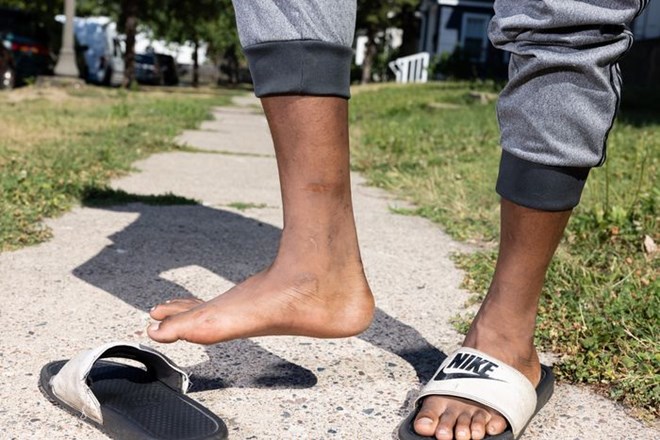
Mr. Aden says his ankles bear scars from being shackled during his time in a Somali center. PHOTO: TIM GRUBER FOR THE WALL STREET JOURNAL
When Mr. Aden was finally allowed a phone call home, he risked retaliation from the staff and told his father about the chains and beatings. Mr. Wako demanded that his wife have the boy released, Mr. Aden says.
Mr. Aden’s mother, who works in a warehouse, says she doesn’t believe her son’s reports of abuse. She says she pulled him out of the Mogadishu center last August, mostly because the weather there was too hot.
“I took him to Africa to get better, not to arrest him or anything,” the mother says.
Fartun Weli, executive director of Isuroon, a Somali women’s organization in Minneapolis, says diaspora parents opt for African rehab centers as a last resort.
“If I were a mom and faced the choice of sending my son to an American prison where he might get raped, I’d rather send him to some horrific place in Somalia,” Ms. Weli says. “That’s what every mom and every dad is thinking.”
Immediately after removing him from the Mogadishu center in August 2021, Mr. Aden’s mother flew him to Nairobi, in neighboring Kenya. A week later, men identifying themselves as police showed up at their hotel.
In Mogadishu Mr. Aden had been blindsided when his mother forced him into a rehab center. This time he saw it coming.
He pretended to go along with the men and then bolted down the street. He says the men caught him, beat him bloody in the back of their SUV and drove him to Irshad, which sits behind cinder-block walls and a guarded metal gate.
The center has inner and outer courtyards, separated by a bolted steel door. In the outer courtyard is a small office, where a sign on the wall says that the minimum rehab stay is three months, and the maximum six months. Phone calls are permitted only after three weeks.
Next to the office is the room where Mr. Okumu, known to residents as the center’s enforcer, lived with his wife, its cook.
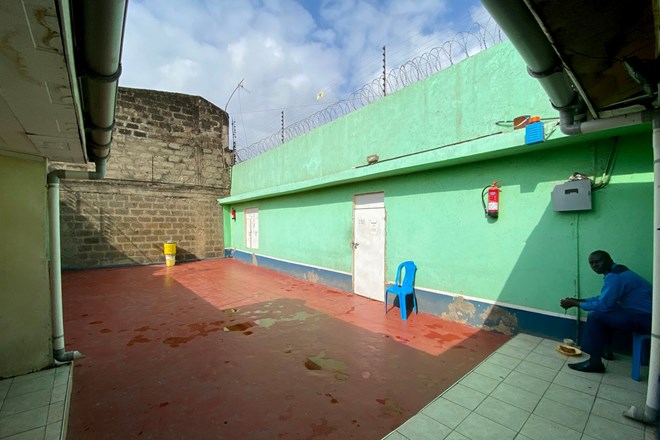
A security guard watches the outer courtyard at Irshad. PHOTO: MICHAEL M. PHILLILPS/THE WALL STREET JOURNAL
Staff wouldn’t allow a reporter into the inner courtyard or the isolation room. Surveillance cameras monitored in the office show a series of resident rooms arrayed around a concrete patio, each with steel blackout shutters, steel security bars and hasps allowing the doors to be bolted and padlocked from the outside.
Relatives routinely have troubled family members involuntarily confined at the center, according to Irshad’s managing director, Abdullahi Hussein, who says he is also one of its owners.
On average, families pay the equivalent of $340 a month for treatment, plus additional fees for food, he adds.
Mr. Abdullahi says he has no day-to-day contact with residents, but denies they are abused. He says such reports are the fantasies of the drug users his center usually treats. “He may think he’s being harmed, but there’s nothing like that,” Mr. Abdullahi says. “We don’t do such things.”
He declined to make Mr. Okumu available for an interview. Mr. Okumu, who didn’t respond to calls or text messages, quit Irshad several weeks ago, according to staffers.
Mr. Abdullahi didn’t respond to further questions about Mr. Aden’s case. He referred inquiries about the facility’s professional standards to its consulting psychiatrist, Dr. Gerald Nganga.
Dr. Nganga says he has visited the center only twice to examine residents, and even then was limited to interviews in the exterior courtyard in the presence of Irshad’s in-house staff. He says none of the residents complained to him of abuse. He says he wasn’t aware of the police raid.
A former Irshad employee says if the young men complain, managers extend their incarceration by a few months.
“I would hate to be affiliated with something like that,” Dr. Nganga says. “You go to a hospital to get well. You don’t go to be restrained and beaten. That has nothing to do with medicine.”
Hassan Sheikh, Irshad’s manager, says the isolation room is used “if somebody needs discipline.”
“First he meets with counselors—they give him a warning and advice,” Mr. Hassan says. “If he doesn’t obey the warnings, he normally gets two to three hours in the isolation room.”
The former employee describes it differently, saying new arrivals are routinely locked in isolation for several days. Mr. Aden reports spending his first five days at Irshad in the punishment room.
“If a boy behaved badly, there was a private room with cold water on the floor,” the former employee says. “They had to sleep on the wet floor all night until morning.”
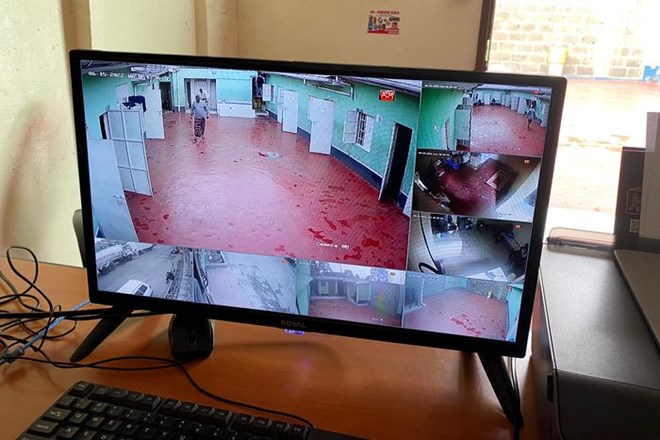
Security camera footage shows Irshad’s inner courtyard, where patients are held. PHOTO: MICHAEL M. PHILLILPS/THE WALL STREET JOURNAL
Another Minnesotan freed during the April raid says an Irshad executive was behind the wheel when men carrying persuasive-looking police ID cards ambushed him outside of his Nairobi hotel in February. The Minnesotan had just arrived from a family visit to Ethiopia.
“You’re being arrested,” the 21-year-old recalls one of the men saying.
“What for?” he says he responded. “I literally just came to the country last night.” The men delivered him to Irshad.
Upon arrival, the Minnesotan says he was locked in Irshad’s isolation room, beaten, soaked in cold water and left to sleep in the resulting puddle on the hard floor.
The U.S. Embassy confirmed that he was among those rescued from Irshad.
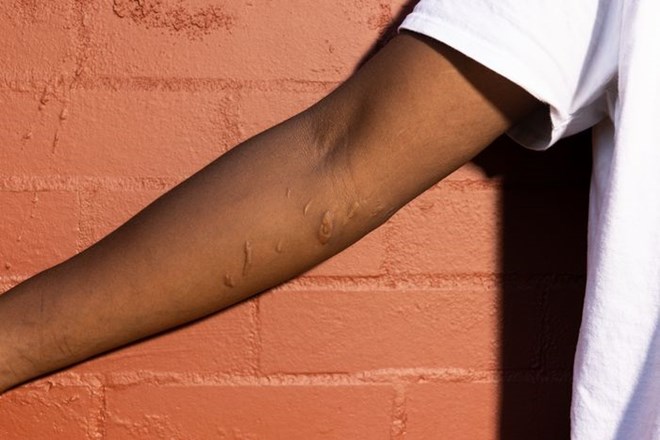
Mr. Aden says he received these scars from razor wire when he tried to escape from Irshad. PHOTO: TIM GRUBER FOR THE WALL STREET JOURNAL
A third young Somali-American held at Irshad told much the same story. “We would get beaten up in a small ass room where there is no lights or windows,” he wrote in response to questions. The embassy verified that he, too, was rescued from Irshad.
In April, Kenya’s Directorate of Criminal Investigations received an anonymous tip that young foreigners were being held against their will at Irshad, according to police spokesman Michael Mugo.
Officers raided the center and collected the 10 foreign residents, but left a dozen ethnically Somali Kenyans locked up at Irshad. Mr. Aden says he tried to sneak one of the young Kenyans out with the rescued foreigners, but was caught.
One officer involved in the raid described conditions at Irshad as “inhumane,” says Inspector Mugo, who adds that no arrests were made. Most cases collapse because the victims don’t appear in court, he says.
Officers drove Mr. Aden and the others to the police station, where a U.S. diplomat met them and arranged for their return to the U.S.
Mr. Aden is now staying with an uncle in St. Paul and driving a forklift in a Minneapolis lumber yard. His troubles derailed his education, but he is still hoping to finish his last year of high school. He dreams of becoming a pilot someday.
He no longer speaks to his mother. “What she did to me wasn’t right,” he says.
Her reply: “I was doing all of that to save him, so he’d have a better future.”
This article is first published in The Wall Street Journal

